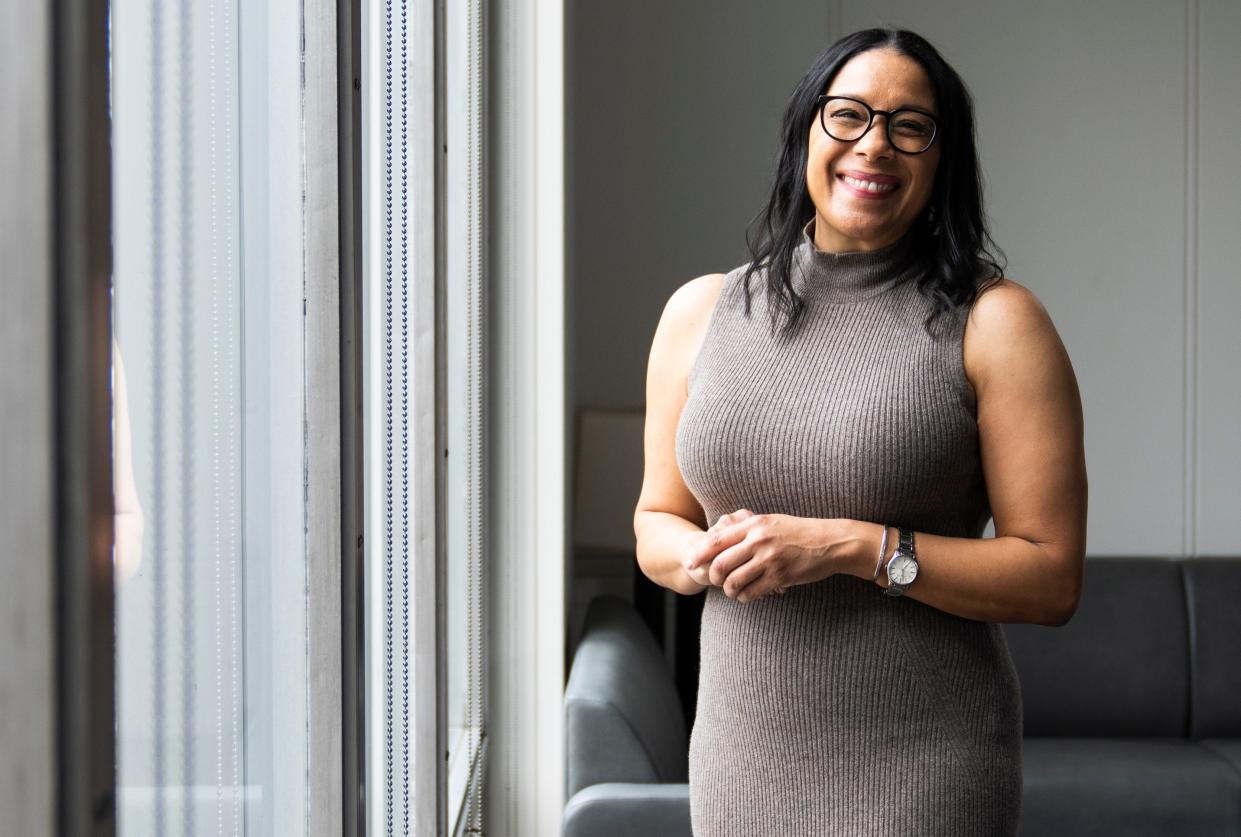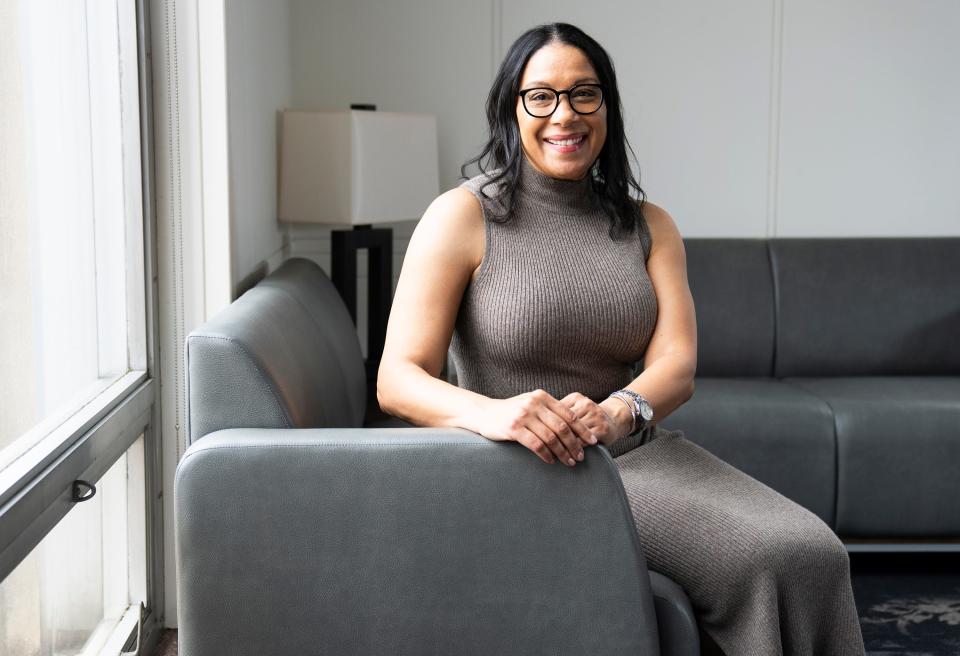New Kirwan Institute director shares goals in her 'dream job'

- Oops!Something went wrong.Please try again later.
Ange-Marie Hancock remembers her father’s excitement when the Kirwan Institute for the Study of Race and Ethnicity was founded in 2003 at Ohio State University.
Named for former university president William English "Brit" Kirwan, the research organization focuses on furthering justice and inclusivity.
“There were not a lot of institutions that did what Kirwan was purported to do at the time,” said Hancock, 53, of Columbus' Northeast Side, daughter of the late OSU professor Charles Hancock.
“(My father) knew Brit Kirwan. He had a sense of Kirwan’s real commitment to diversity, equity and inclusion and why it should be named after him. And then he was also excited about the first director, John Powell.”
Twenty years later, Ange-Marie Hancock is taking over as executive director.
More:Columbus zoning code overhaul should combat history of racism, council told
A Columbus native and graduate of Thomas Worthington High School, Hancock will begin her role Jan. 1.
She previously worked at the University of Southern California, where she served as a professor and department chair of political science and international relations. She also directed the USC Institute for Intersectionality and Social Transformation and the Center for Leadership by Women of Color.
Hancock spoke with The Dispatch about her vision for the Kirwan Institute.
What excites you about the executive director role?
It’s literally my dream job. It doesn't matter whether you're an English professor, public policy professor or a public health professor — you have some research that matters to the world more broadly. And so the first part of what Kirwan is designed to do is to really bring that research to the world. And seeing what Kirwan can do more broadly throughout the state was also something that was really appealing. Kirwan has done a lot of work as the statewide coordinator for (youth initiative) My Brother's Keeper, but I would like to see that statewide reach happen on the research side.
What research topics will you tackle first?
One area I'm interested in is what I’m calling the evolution of what it means to be a Buckeye. (I’m interested in) all of the economic investment that's been taking place in the state of Ohio. When you think about the different populations that are going to be coming to Licking County (for Intel jobs) and Jeffersonville (for Honda jobs), ... Kirwan can really make a difference in helping people understand what scholars call immigrant integration.
The other thing that I'm really interested in is looking at the ways in which certain policies can eradicate persistent poverty, and the racial impact of that. There’s a policy called 10-20-30 that ostensibly should have benefited the state of Ohio. The policy is 10% of funds at the federal level should be dedicated to counties that have 20% or higher poverty rates that have persisted for longer than 30 years. So I want to do some research to look at whether those federal policies have benefited Ohio.
How do you ensure your research is used to develop solutions?
The first way I handle it is to remain connected to community-based organizations that really push me and scholars that I work with. It's up to us as scholars to partner with them and to say, ‘OK, you've got this solution that maybe works for 50 people. How do we scale that up so it works for 50,000 people or 500,000 people?’
I really don't allow the research that I do to just rehearse what the problem is. Does the Kirwan need to say there's racism in the world? No, I don't think the Kirwan needs to rehearse that over and over again. I think it does make sense to say, knowing that there's racism in the world, how do we improve health disparities? How do we make sure that, when a major plant comes in, that everybody gets an opportunity to benefit economically?
Where does your passion for this work come from?
When I was growing up, for my 14th birthday, I said, "I want go to the anniversary of the March on Washington." I've always been someone who cared a lot about justice, and I get a lot of that from my mom and my dad.
More:Racial inequities costs Columbus economy $10 billion a year, report finds
Why is it important for Black women like yourself to have opportunities to lead?
No matter what sector we're talking about, whenever I see Black women leaders, I see them as being more collaborative in their leadership style. They look at leadership as a process, and a trait that can be cultivated in lots of people. I try to work in partnership with groups of advisors or groups of people. It doesn't mean I can't make a decision. But it's much more about understanding and knowing that collectively, there can be more wisdom than individually. (Black women) are much more willing to focus on shared goals and shared solutions. Now I do think we're not always portrayed that way. But there just aren't enough of us out there for people to really understand the way that we lead.

Now that you’re back in Columbus, what activities are you looking forward to?
I was really looking forward to coming back to Max & Erma's, but it’s gone. So I’m really sad about that, but I’m working through it.
I love Graeter's Ice Cream. I'm really looking forward to finding a church. And I'm ready for Buckeye football.
@miss_ethompson
This article originally appeared on The Columbus Dispatch: Ange-Marie Hancock is new executive director at Kirwan Institute

